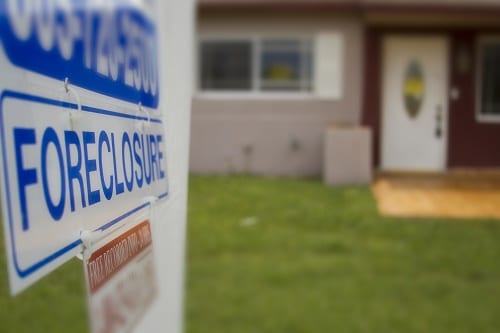The Types of Foreclosure

When people hear the word “foreclosure” they may not realize that there are multiple types. Each type of foreclosure has its own set of procedures and tends to favor one side (lender or borrower) over the other. The three types of foreclosure are judicial, non-judicial and strict foreclosure. In this article, we will describe each one.
Judicial: The form of foreclosure that most people are familiar with, judicial foreclosure is the process in which a court orders the sale of a property in order to satisfy a mortgage. The lender files a lawsuit against the homeowner and a formal notification is made. The homeowner is given a set amount of time to pay their debt. If they do not pay it, the property is sold at an auction and the proceeds from the sale are used to pay off the mortgage and any lien holders. This process is long and doesn’t provide a particular advantage for either party. Judicial foreclosures costs the lender and prevents them from gaining revenue while the process takes place. For homeowners, being sued and having an official notice appear on your property can be demoralizing. Foreclosures, in general, also damages your credit tremendously. A great alternative to a judicial foreclose is a deed in lieu. With a deed in lieu, the homeowner formally returns the property to the lender. If the lender accepts the property, no legal action takes place and your credit record is not damaged.
Non-Judicial: If your mortgage has a power of sale clause or if you are in a state in which a deed of trust is used instead of a mortgage, the lender has to right to foreclose on property without the approval of a court. As with judicial foreclosure, a formal notification is made, but the window of time before a property is sold may be shorter. This process presents an advantage to lender because it takes less time and money to foreclose on a property. The borrower has less time to resolve their debt and potentially keep their home.
Strict Foreclosure: Strict foreclosures are less common than judicial and non-judicial foreclosures. In a strict foreclosure, the lender seeks a court order to seize property from a homeowner. Once approved, the homeowner is given a set period of time to resolve the debt. If they are unable to do so, the property returns to the lender who is free to do with it as they choose. While it’s not much of an advantage for the homeowner, at least they have a designated time to pay their debt before losing their home.
Foreclosure is an emotional and financially difficult process to endure. The smartest choice you can make is finding a foreclosure lawyer that understands the process and can help you make sound choices for your future. The foreclosure attorneys at McIntyre Thanasides Bringgold Elliott Grimaldi & Guito, P.A. provide a wealth of experience and an ability to look at your individual situation, provide sound analysis and determine a proper solution. Contact them today at 844-511-4800.
